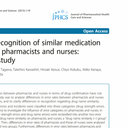Delta(9)-tetrahydrocannabinol prolongs the immobility time in the mouse forced swim test: involvement of cannabinoid CB(1) receptor and serotonergic system.
Keywords
Abstract
In the present study, we investigated the effect of Delta(9)-tetrahydrocannabinol (THC), the principal psychoactive component of marijuana, on immobility time during the forced swim test. THC (2 and 6 mg/kg, i.p.) significantly prolonged the immobility time. In addition, THC at the same doses did not significantly affect locomotor activity in the open-field test. The selective cannabinoid CB(1) receptor antagonist rimonabant (3 mg/kg, i.p.) significantly reduced the enhancement of immobility by THC (6 mg/kg). Similarly, the selective serotonin (5-HT) reuptake inhibitor (SSRI) citalopram (10 mg/kg, i.p.) and 5-HT(1A/7) receptor agonist 8-hydroxy-2-(di-n-propylamino) tetralin (8-OH-DPAT, 0.3 mg/kg, i.p.) significantly reduced this THC-induced effect. Moreover, the selective 5-HT(1A) receptor antagonist N-[2-[4-(2-methoxyphenyl)-1-piperazinyl]ethyl]-N-(2-pyridinyl) cyclohexane carboxamide dihydrochloride (WAY100635, 1 mg/kg, i.p.) and the postsynaptic 5-HT(1A) receptor antagonist MM-77 (0.1 mg/kg, i.p.) reversed this reduction effect of 8-OH-DPAT (0.3 mg/kg). In contrast, the selective 5-HT(7) receptor antagonist (R)-3-[2-[2-(4-methylpiperidin-1-yl)ethyl]pyrrolidine-1-sulfonyl]phenol hydrochloride (SB269970) had no effect on this reduction effect of 8-OH-DPAT. WAY100635 (1 mg/kg) also reversed the reduction effect of citalopram (10 mg/kg). These findings suggest that the 5-HT(1A) receptors are involved in THC-induced enhancement of immobility.


